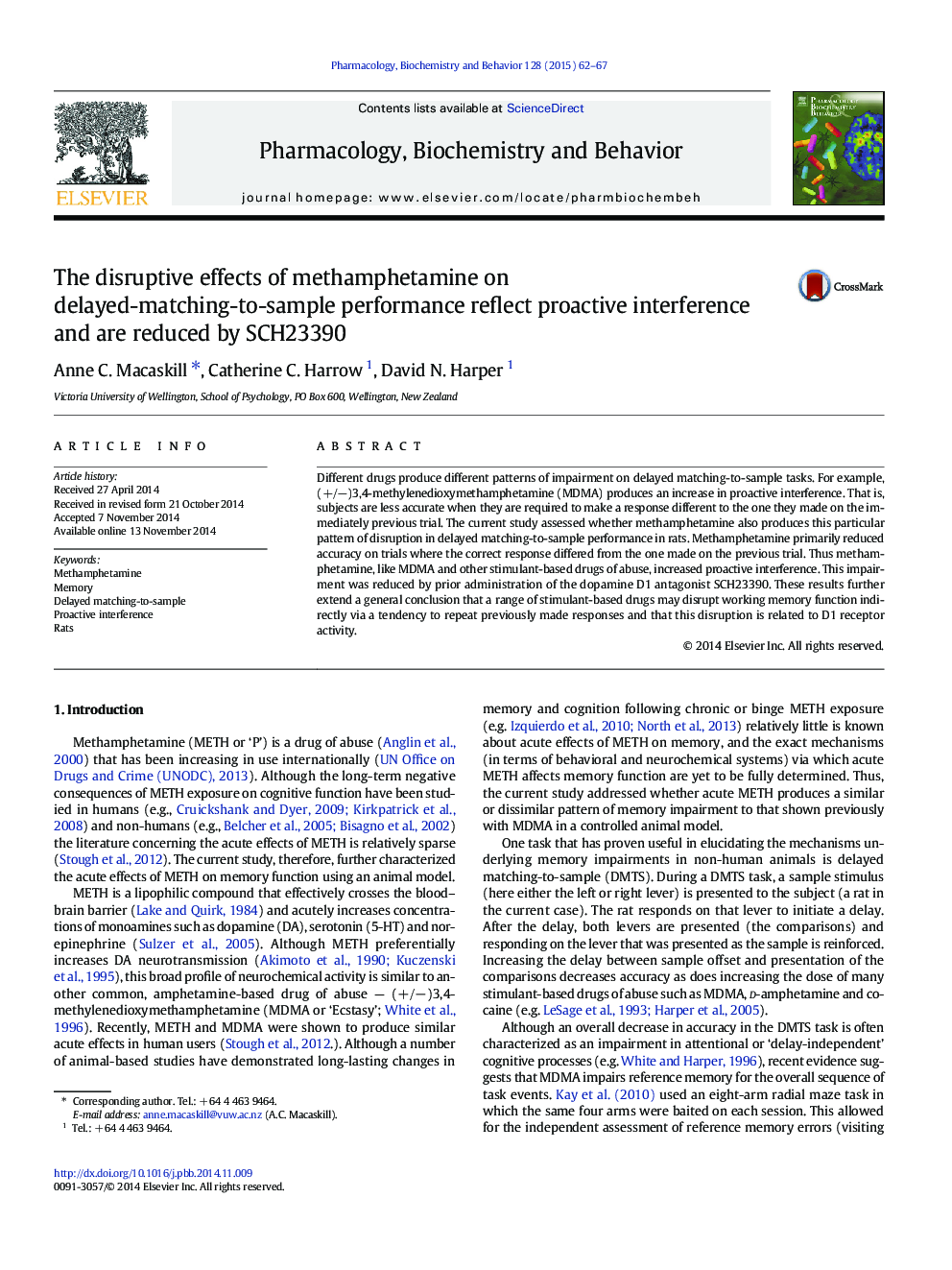| Article ID | Journal | Published Year | Pages | File Type |
|---|---|---|---|---|
| 2012824 | Pharmacology Biochemistry and Behavior | 2015 | 6 Pages |
•We characterize the pattern of memory disruption produced by methamphetamine.•Disruptions to delayed matching-to-sample performance reflected proactive interference.•Methamphetamine produces similar memory disruptions to MDMA.•Methamphetamine's effect on memory was reduced by the D1 antagonist SCH23390.
Different drugs produce different patterns of impairment on delayed matching-to-sample tasks. For example, (+/−)3,4-methylenedioxymethamphetamine (MDMA) produces an increase in proactive interference. That is, subjects are less accurate when they are required to make a response different to the one they made on the immediately previous trial. The current study assessed whether methamphetamine also produces this particular pattern of disruption in delayed matching-to-sample performance in rats. Methamphetamine primarily reduced accuracy on trials where the correct response differed from the one made on the previous trial. Thus methamphetamine, like MDMA and other stimulant-based drugs of abuse, increased proactive interference. This impairment was reduced by prior administration of the dopamine D1 antagonist SCH23390. These results further extend a general conclusion that a range of stimulant-based drugs may disrupt working memory function indirectly via a tendency to repeat previously made responses and that this disruption is related to D1 receptor activity.
